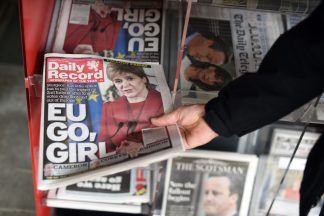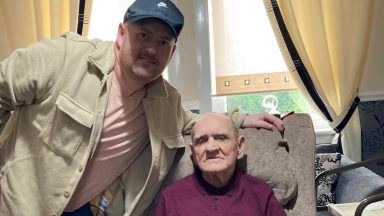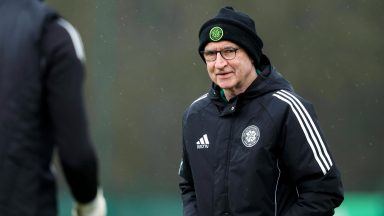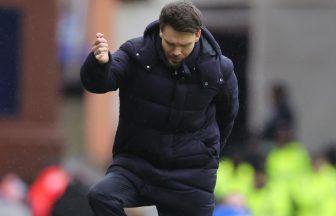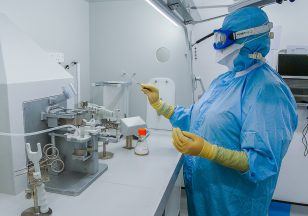When Steve Clarke said goodbye to his Scotland players after their double-header against Cyprus and Kazakhstan last November, he might have felt some frustration that it would be difficult to keep momentum going.
The national team boss had seen his team sign off for 2019 with a 2-1 away win and a 3-1 victory at Hampden and all eyes were now turning to the Euro 2020 play-offs in March and Scotland’s chance to end a 22-year exile from major finals.
Shortly after being appointed to the role, Clarke had described himself as “a good manager but a really good coach”. The success of his teams on the pitch is built on his meticulous work at the training ground. The idea of waiting four months to get his players back together to face Israel, and hopefully Norway or Serbia, would not have been a welcome one.
Nine months later Clarke finds himself finalising his squad for facing Israel while dealing with questions that would have been ludicrous if they had been raised before football’s calendar was put through the shredder.
The new calendar is a little confusing though. The play-off place, earned in the last Nations League, has been pushed back to October. Before then, there’s a chance to rebuild momentum with two games in the next Nations League campaign, against Czech Republic on September 7 but, three days before that, against Israel at Hampden.
Clarke welcomed the Nations League games and the quirk of fate that sees his side play a “dress rehearsal” a month ahead of the play-off. But it’s the timing of domestic football, rather than UEFA’s competition, that may cause him a headache.
The manager will announce his selections on Tuesday, ten days before the Hampden showdown, meaning this weekend’s Premiership matches are the last chance for anyone to play their way into his squad. Clarke has had plenty of time to ponder his choices but this time around the shake-up of league schedules may have opened some doors.
In his ideal world, the core of this Scotland squad would be drawn from England’s top flight, with players battle hardened from testing themselves regularly against the likes of Mohamed Salah, Kevin De Bruyne and Bruno Fernandes.
If the Israel game had been played in March, Clarke would have been deprived of two of those players with John McGinn and Scott McTominay sidelined with injuries.
The good news? Both have now recovered and shown their importance all over again. McGinn played a key role in Aston Villa’s fight against relegation, while McTominay helped Manchester United to a Champions League place and the semi-finals of the Europa League.
The bad news? After those exertions the players went on holiday and are only just returning to pre-season training. And it’s not just them. Ryan Fraser, now a free agent, Southampton’s Stuart Armstrong, Liverpool’s Andy Robertson, Sheffield United’s John Fleck and Oli McBurnie, and Liam Cooper of newly-promoted Leeds United are all likely call-ups and will be going into the internationals without having played a competitive game in over a month.
It’s not just the Anglos who will have Clarke scratching his head. Craig Gordon left Celtic this summer in search of first team football and hoping that would help him add to his 54 international caps. He returned to Hearts, where his name will be the first on Robbie Neilson’s team sheet every week. The only problem is that Neilson won’t fill out a team sheet for a competitive game until October 6.
Gordon’s Hearts teammate Steven Naismith has been a reliable performer in dark blue over the years but sees his chances hampered by a lack of game time before the double-header. The decision by the Joint Response group to pause Hearts training won’t have helped, though they will be back on the grass from Monday.
That leaves Clarke looking at the Scottish Premiership contingent for good news and the fledgling season might have given him some cheer.
Jon McLaughlin’s three games and three clean sheets for Rangers have probably put him in pole position to start against Israel.
The Aberdeen and Celtic players may have had a short lay-off for well-publicised reasons but both will join Clarke’s squad with domestic and European games under their belt. Likewise Declan Gallagher and Stephen O’Donnell of Motherwell.
It’s in attack that the Premiership may make the squad selection easier. Dundee United’s Lawrence Shankland has been struggling with a niggling ankle injury but could return this weekend. And though Australia-born Lyndon Dykes left Livingston and the league for QPR this week, he may return north of the border to declare for Scotland and add a welcome new option at number nine.
The same problems with sharpness and conditioning will affect Israel, whose own league starts today, but Clarke will only concern himself with his own side.
In less than a fortnight, he will lead his team out at Hampden to silence, with the Tartan Army still not able to return to watch games. It will be bizarre, unsettling and a new entry in a football history with more than its fair share of the odd and curious.
But the strangeness begins with the build-up and Clarke choosing 23 players when form and fitness are uneven. This last weekend of action before he draws a line under his choices could yet bring another surprise.






